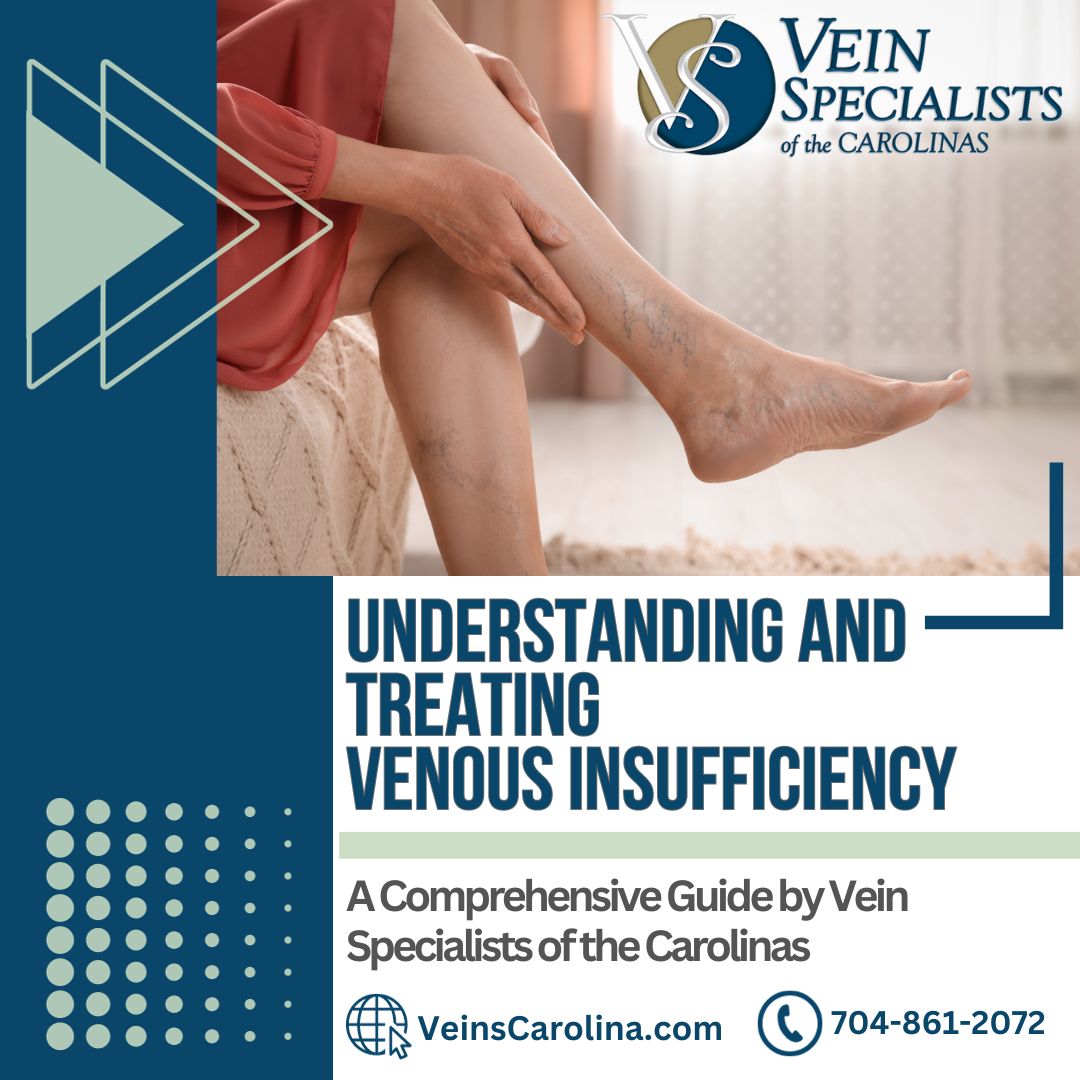Venous insufficiency is a common vascular condition that affects many individuals, often causing discomfort and impacting the quality of life.
At Vein Specialists of the Carolinas, we recognize the significance of addressing chronic venous insufficiency promptly and effectively. In this comprehensive guide, we discuss the causes, symptoms, and advanced treatments available for venous insufficiency, including venous reflux, a prevalent manifestation of this condition.
Understanding Chronic Venous Insufficiency
Chronic venous insufficiency (CVI) is a condition that occurs when the valves in the veins fail to function properly, leading to impaired blood flow from the legs back to the heart. This can result in the pooling of blood in the lower extremities, causing a range of symptoms such as leg pain, swelling, and skin changes. Venous insufficiency often stems from prolonged periods of standing or sitting, obesity, pregnancy, and a family history of venous disease.
Recognizing the Symptoms
Individuals experiencing venous insufficiency may notice symptoms such as aching or heaviness in the legs, swelling, cramping, and changes in skin color or texture. These symptoms can progress over time if left untreated, potentially leading to more severe complications. It is crucial to seek professional medical advice if you suspect you may be suffering from venous insufficiency.
Diagnosing Venous Reflux
Venous reflux, a common manifestation of venous insufficiency, occurs when the valves in the veins fail to prevent backward flow, leading to blood pooling in the legs. Our state-of-the-art diagnostic tools, including ultrasound imaging, allow us to accurately identify venous reflux and its underlying causes. This precise diagnosis is essential for tailoring an effective treatment plan.
Advanced Treatments for Venous Insufficiency
Vein Specialists of the Carolinas offers cutting-edge treatments for venous insufficiency, addressing both the symptoms and the underlying causes. Minimally invasive procedures such as radiofrequency ablation (RFA) have revolutionized the treatment landscape. These techniques target and seal off the malfunctioning veins, rerouting blood flow to healthier vessels, and providing significant relief to patients.
Customized Treatment for Venous Reflux in Legs
Venous reflux in the legs can be effectively treated with a combination of lifestyle modifications and minimally invasive procedures. Our experienced team tailors treatment plans to the unique needs of each patient, ensuring optimal results. Lifestyle adjustments may include regular exercise, maintaining a healthy weight, and wearing compression stockings. In cases where more intervention is required, advanced procedures like venaseal closure system or ambulatory phlebectomy may be recommended.
Preventing and Managing Venous Disease
Prevention plays a crucial role in managing venous disease. Our vein specialists educate patients on lifestyle changes and habits that can help prevent the progression of venous insufficiency. This may include maintaining a healthy weight, staying physically active, elevating the legs, and avoiding prolonged periods of sitting or standing.
Venous insufficiency, encompassing conditions like chronic venous insufficiency and venous reflux, can significantly impact an individual’s well-being. At Vein Specialists of the Carolinas, we are committed to providing comprehensive and advanced care to alleviate the symptoms and address the root causes of venous insufficiency.
If you are experiencing any signs of venous disease, don’t hesitate to schedule an appointment with Vein Specialists of the Carolinas for an accurate diagnosis and personalized treatment plan.
“All We Do Is Veins, All Day Every Day.”
#VeinHealth #VascularCare #VenousInsufficiency #VeinSpecialists #HealthyLegs #VenousRefluxTreatment #LegHealth #VascularInsufficiency #ChronicVenousInsufficiency #AdvancedVeinCare

